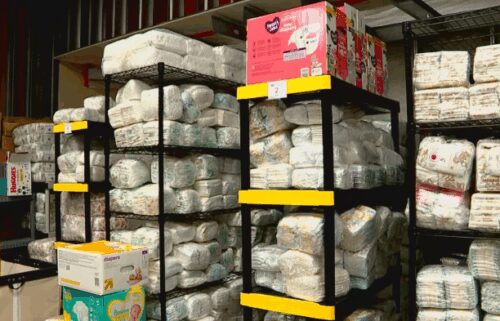Rare set of identical triplets born at the Hospital of the University of Pennsylvania
By Alicia Vitarelli
Click here for updates on this story
PHILADELPHIA (WPVI) — Three beautiful, healthy newborn girls are one in a million. Technically, they’re more like one in 200 million.
The identical triplets defied every odd and their parents could not wait to show off these rare beauties.
Anastasia, Olivia and Nadia were born on July 8 at the Hospital of the University of Pennsylvania in Philadelphia .
Multiples run on mom’s side, but still, you can imagine the surprise when the Gloucester Township, New Jersey couple found out they were about be a family of seven.
“My right eye went this way, my left eye went this way,” said dad, Mark Bodrog. “I kind of walked in circles for about 20 minutes. I mean, what do you do when you hear ‘triplets?'”
“We were both surprised for sure,” said mom, Gabriela Mosquera.
Turns out, they’re a very rare set of identical triplets.
“They’re from the same egg, sharing the same placenta with three separate amniotic sacs,” said Bodgrog. “It’s so rare. There are hardly any case studies on it.”
Getting the babies here was a medical feat. The Hospital of the University of Pennsylvania instantly stepped in.
“They said, ‘You guys are coming here. We want to do this pregnancy. It’s so rare. Highly, highly risky,'”
A team of more than thirty medical professionals delivered the girls at precisely 34 weeks and five days, each weighing over 5 pounds.
“The last two weeks were really rough for me,” Mosquera said. After all, she was carrying about 15 pounds of babies.
Mosquera says she’s doing great, but understandably tired.
Anastasia, Olivia and Nadia came home to two big sisters. Isabella is three and a half and Sofia is two. They’re already taking charge.
“They renamed the baby sisters Elsa, Anna and Olaf from Frozen,” said Bodrog.
How are they telling them apart?
“We’re painting their toenails,” said Mosquera. “Red is for Anastasia, blue is for Olivia and then Nadia doesn’t get anything.”
About this full house, with five girls under three and a half, they say they are “blessed.”
“But we are never going to sleep again, ever,” said Bodrog.
Because their birth was so rare, the Hospital of the University of Pennsylvania is also staying in touch with the family for research reasons, to document this medical marvel.
Please note: This content carries a strict local market embargo. If you share the same market as the contributor of this article, you may not use it on any platform.



